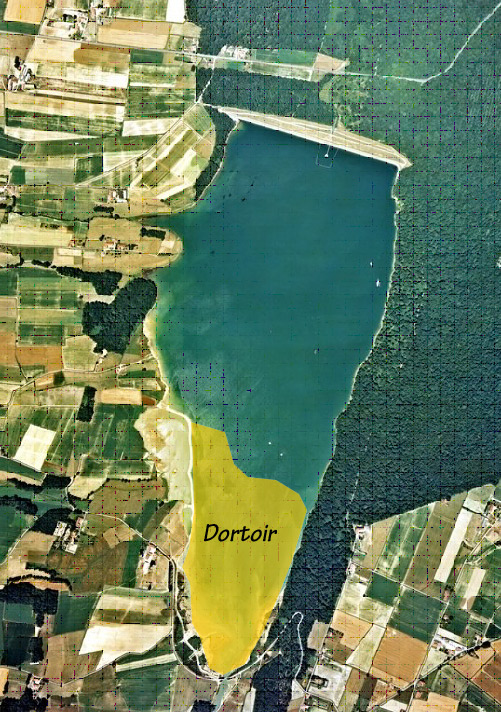You can return to the map of European sites by clicking here, or select a site from the list in the left menu.
Saison 2025/2026
Lac de Puydarrieux
Informations : Valérie Ducasse, Julien Sarthe et Emmanuel Pinneau
Garderie de Puydarrieux (Hautes-Pyrénées)
| Date | Nombre |
| 27/12/2025 | 5 665 |
| 23/12/2025 | 4 260 |
| 17/12/2025 | 4 150 |
| 8/12/2025 | 4 770 |
| 5/12/2025 | 4 120 |
| 3/12/2025 | 3 870 |
| 26/11/2025 | 3 880 |
| 21/11/2025 | 5 100 |
| 19/11/2025 | 3 680 |
| 12/11/2025 | 2 250 |
| 8/11/2025 | 2 250 |
| 3/11/2025 | 1 100 |
| 24/10/2025 | 620 |
| 19/10/2025 | 350 |
| 13/10/2025 | 13 |
| 07/10/2025 | 5 |
| 01/10/2025 | 8 |
Location
The dam of Puydarrieux (43.17 N / 00.23 E) is located on a strategic point on the migration route following an axis NE / SO, between the Northern breeding areas, just before the barrier of the Pyrenees (3 000 m) and the wintering regions in Spain.
Technical features
- Mastery of work: Compagnie d'Amenagement des Coteaux de Gascogne
- Objectives: crop irrigation, support of the low-water level for the rivers in the Gers area and drinking water supply.
- A hill reservoir getting water in 1987 with an area of 220 hectares and a capacity of 14 million m3, in place of a pedunculated oak forest.
- The Lake has for original vocation the irrigation, the low water-lever and the conveyance of drinking water.
Regulatory measures and Natura 2000
- Protection order of biotope of 16 June 1989 defining a zone of tranquility.
- Ministerial order of hunting and wild fauna reserve 21 June 1989

- Settlement of a mission for nursery, scientific monitoring and reception of the public initiated by the Departmental Council provided by Soazig Lemur and Valerie Ducasse
- Fittings of ecological engineering in 1994 (lagoons at constant level)Integration to the network Natura 2000 dated 05 January 2006 with the creation of a bird Spa.
Ornithological interest
- In all times cranes used the Lannemezan plateau as a stopover before crossing the Pyrenees.
- Since 1989, the first cranes have a stopped at the tidal range of the Lake of Puydarrieux. Quiet conditions, proximity to water and feeding areas allowed a regular growth of the number of birds wintering there
 This site for wintering and stopover offers a high variety of food with an important tidal area which becomes a vegetable area as the water level declines. The ground cultivated in the immediate vicinity of the site as well as the feeding areas nearby make up important food resources. The Lake of Puydarrieux fits naturally over the years among the important parking sites for the crane species.
This site for wintering and stopover offers a high variety of food with an important tidal area which becomes a vegetable area as the water level declines. The ground cultivated in the immediate vicinity of the site as well as the feeding areas nearby make up important food resources. The Lake of Puydarrieux fits naturally over the years among the important parking sites for the crane species.
The Lake has an ornithological interest which continues to grow year by year, welcoming over the years nearly 240 species of birds including some remarkable such as the White-tailed Eagle, the Pink-footed goose, the Sociable Plover and the Bonelli's Eagle.
During the last years, the Lake of Puydarrieux hosted during this migration only a few individuals tired or still young and only a few units. This was not the case in February 2002 as more than 4 000 individuals have attended or flew over the site on the day of 25 February.
Attention: The Area of Tranquility settled on the upstream portion of the Lake, the forest in right bank and the farmland in left bank, to ensure the tranquility of the birds, is strictly forbidden to human penetration; the observations can be made from the side of the road
Information : Soazig Lemur et Valérie Ducasse
Translation : Sylvie Gendeau